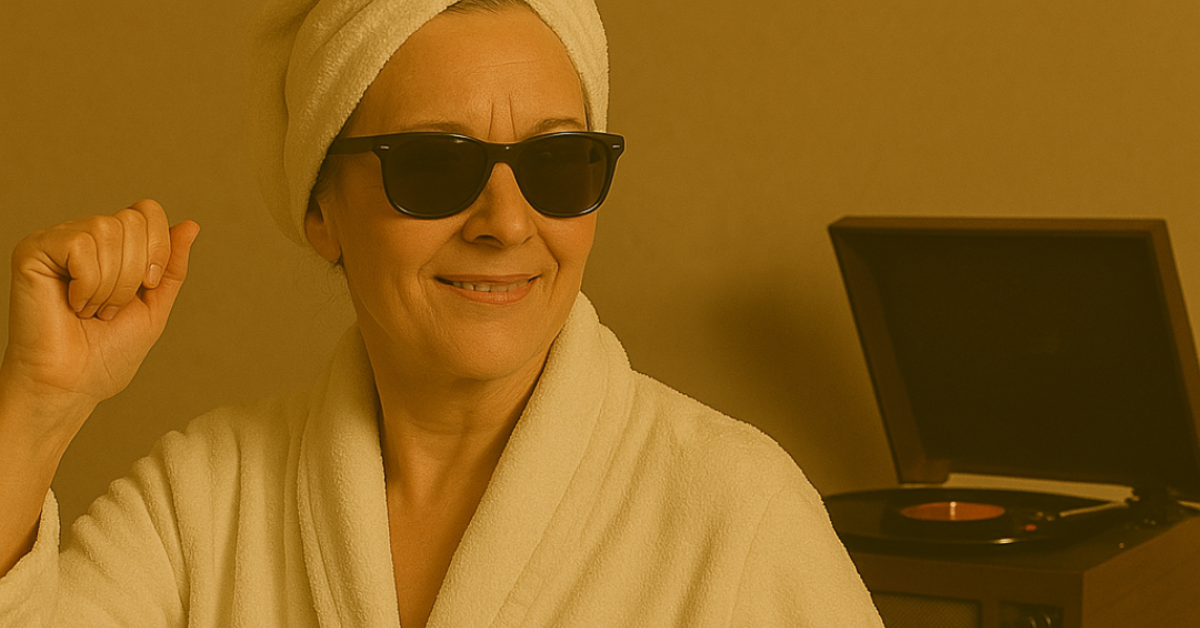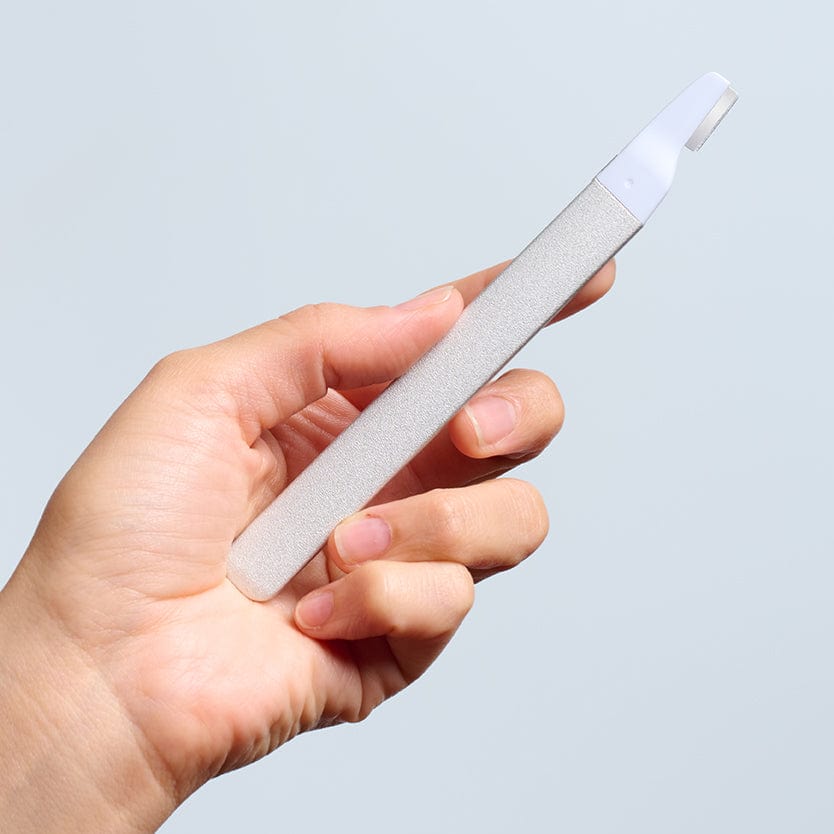How to Boost Collagen Naturally After 40
Written by Kerry Benjamin

By the time you hit 40, your skin starts to feel… different. A little less bounce, a little more dullness, maybe even a sag or two. That’s collagen talking—or rather, the lack of it.
Collagen is the structural protein that keeps skin firm, plump, and elastic. But as you age, your body produces less of it. The result? Thinner skin, deeper lines, and slower healing. If you’re looking for ways to support your skin naturally, here’s what actually works—backed by science, not trends.
Note: There’s nothing wrong with using injectables, lasers, or whatever else makes you feel good in your skin. But if you prefer to go the natural route, this one’s for you.
What Happens to Collagen After 40
Collagen production slows down in your 30s, and by your 40s, it’s in free fall. Combine that with declining estrogen levels and a slower cell turnover rate, and your skin starts to lose firmness, elasticity, and that glow you didn’t realize you’d miss so much.
That means your skincare strategy needs to mature too—no more fluff, no more wishful thinking.
What to Eat for Collagen Support
Here’s the truth: your body makes collagen using the building blocks you give it—amino acids, vitamins, and minerals—not by absorbing powdered collagen from a trendy tub.
Eat smart with:
- Vitamin C – Bell peppers, citrus, berries, and leafy greens help fuel collagen production.
- Amino acids – Found in protein-rich foods like chicken, eggs, fish, and beans.
- Zinc & Copper – Vital trace minerals found in seeds, nuts, and shellfish.
- Antioxidants – Found in foods like blueberries, matcha, and dark chocolate to help prevent the breakdown of collagen from oxidative stress.
Let’s Talk Honestly About Collagen Supplements
Most collagen supplements are total BS. They’re just overpriced protein powders with a fancy label and vague promises. And while some small, industry-funded studies suggest a potential benefit for skin hydration, there is no serious scientific consensus that drinking collagen leads to increased collagen production in your skin.
Your body doesn’t absorb collagen whole—it breaks it down into amino acids, just like any other protein. And there’s no way to guarantee those amino acids will be used to rebuild collagen in your skin. It’s marketing, not medicine.
So if you love the ritual or enjoy the taste, knock yourself out. But if you’re taking it hoping for real skin transformation, you’re better off spending your money on proven topicals and targeted nutrition.
Skincare Ingredients That Actually Boost Collagen
Want visible, real results? Here’s what to use:
- Retinol – Increases cell turnover and stimulates collagen production.
- Peptides – Signal your skin to rebuild structure and firmness.
- TCA Multi Acid Peel – Encourages skin regeneration by exfoliating dead layers.
- EGF Serum – Boosts skin healing and elasticity after exfoliation or needling.
Kerry’s Tip: I use the Stacked Retinol Serum five nights a week with microneedling to boost collagen both topically and mechanically. Yes, even under my eyes and on my neck. It works.
Tools + Devices That Support Collagen
You don’t need to drop thousands at a med spa to see results. These are the tools I use at home consistently—and why they work.
Microneedling
Microneedling uses tiny needles to create micro-injuries in the skin, triggering your body’s wound-healing response. This stimulates collagen and elastin production, smoothing texture and firming the skin over time.
It also boosts product absorption—by up to 67% according to some studies—so your serums penetrate deeper and work harder.
I microneedle five nights a week with the Stacked Retinol Serum. This combo works from both angles—retinol boosts collagen production on the surface while microneedling kickstarts it deeper in the dermis. I also use it under my eyes and on my neck. Game-changer.
Dermaplaning
Dermaplaning is a physical exfoliation technique that removes dead skin cells and peach fuzz with a precise, sterile blade. It instantly brightens the skin and helps your products absorb more effectively—plus, it helps alleviate dry patches by removing the surface buildup.
I dermaplane whenever my skin starts looking dull—usually every 10 days or so. Because I use actives that speed up cell turnover, I get buildup faster. Dermaplaning resets everything. It’s a cycle: actives increase turnover, dermaplaning removes what’s built up, and I start fresh. That’s how I stay glowy, dewy, and fresh.
Red Light Therapy
Red light therapy uses low-level wavelengths of light to penetrate the skin and stimulate collagen production, reduce inflammation, and improve skin tone.
I use Celluma red light therapy regularly. I lay down, put it on, and take a 30-minute nap—it’s the most relaxing part of my routine. And it works. With consistent use, it supports collagen, healing, and overall skin vitality.
Lifestyle Habits That Protect Collagen
SPF: More Than Just a Step
UV damage is the #1 cause of collagen breakdown. And most people aren’t using enough sunscreen. You need more than ¼ teaspoon for your face and neck.
A 2021 study published in Photodermatology, Photoimmunology & Photomedicine found that most people apply only 20–50% of the recommended amount—which drastically reduces the actual protection you're getting.
👉 Example: Applying half the proper dose of SPF 50 gives you the equivalent of about SPF 7–10.
Wear it daily. Reapply every 2 hours if you’re outdoors. No excuses.
Protective Clothing + Accessories
Don’t stop at SPF. If you’re spending time outdoors—especially if you’re exercising in the sun—wear a wide-brim hat and consider UV-protective clothing. Your chest, shoulders, and the backs of your hands are often forgotten but prone to damage. Long-sleeve UPF-rated tops and gloves exist for a reason. Use them.
Manage Stress (and Move Your Body)
Stress increases cortisol, which breaks down collagen and slows healing. One of the most effective ways to combat stress? Exercise.
Movement not only regulates your nervous system and reduces cortisol—it also increases circulation, delivering more oxygen and nutrients to your skin. That’s direct support for collagen production. Bonus: it boosts your mood and energy, too.
Prioritize Sleep
Your skin regenerates while you sleep. If you’re menopausal and waking up at 3:30 a.m. (been there), start a wind-down routine early: lights down, screens off, magnesium, calming playlist, whatever helps you stay asleep. Sleep is skincare.
Cut Sugar + Alcohol
Sugar triggers glycation, a process that damages collagen and makes skin stiff and less elastic. Alcohol dehydrates and inflames. These two will age your skin faster than almost anything.
Stay Hydrated
Water keeps your skin plump, resilient, and functioning at its best. Hydration supports your skin’s barrier, elasticity, and overall bounce. Easy. Free. Essential.
Final Thoughts
If you want better skin after 40, skip the gimmicks and get serious. No powder is going to do the work for you—but you can absolutely support collagen naturally with clinical skincare, effective tools, and targeted lifestyle shifts.
You don’t need to be perfect—you need to be consistent.
Ready to Stack Smarter?
The StackedSkincare system was designed specifically for women over 40 who want to see real results. Tools that work. Ingredients that matter. And a routine that actually respects your experience level.
Take the Skin Quiz to get your personalized collagen-boosting plan
Shop the System and build a stack that delivers
About the Author

Kerry Benjamin, a licensed aesthetician, has over 14 years of experience. Kerry is the driving force behind StackedSkincare. As the company's CEO, Kerry has dedicated her career to revolutionizing skincare. Her innovative approach combines peels, serums, and specialized tools to effectively address a wide range of skin concerns. CA LE license number Z98459.

